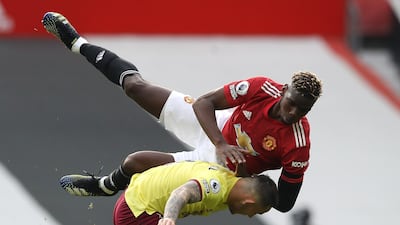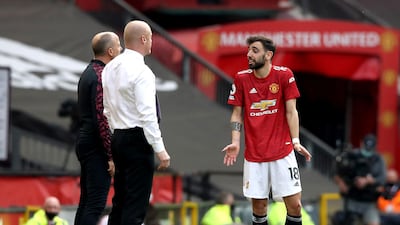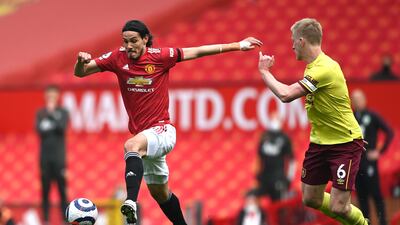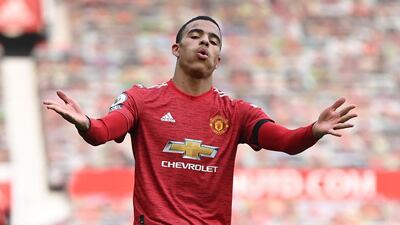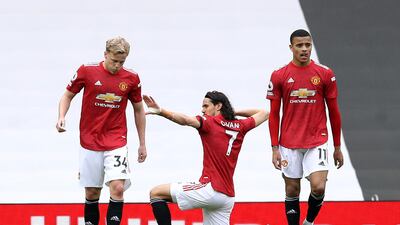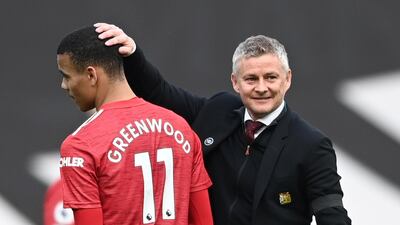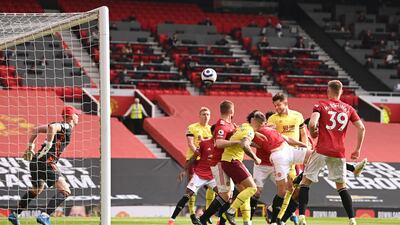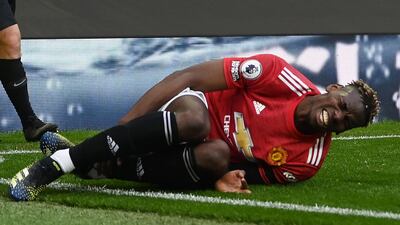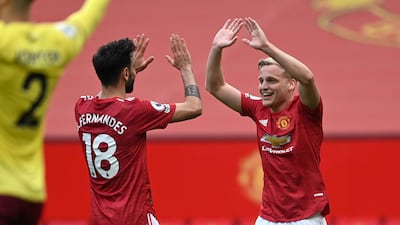“What I can assure all of you is that we will keep match-going fans firmly in the centre of our thoughts, whether with the Premier League, Fifa or Uefa, and across our decision-making processes overall,” Manchester United’s Ed Woodward said during the Coronavirus lockdown, “because the last eight months has reminded us all of just how crucial you are to the fabric of the game. This game without fans is nothing.”
Woodward expressed these sentiments at a United fans' forum in November. He was not at the forum on Friday since he was at another meeting.
Woodward may be United’s leading suit, but he doesn’t wear the trousers. He’s an employee and reports to his boss, Joel Glazer, the man who oversees everything from Washington or Florida. United have not consulted fans about the European Super League they’ve signed up to and there was no mention of it at Friday’s forum.
Joel Glazer? He’s wise to say little publicly since the anger felt over the 2005 takeover of Manchester United is still substantial, but Glazer’s name was on a press release which went out at 12.10am UK time on Monday.
“By bringing together the world’s greatest clubs and players to play each other throughout the season, the Super League will open a new chapter for European football, ensuring world-class competition and facilities, and increased financial support for the wider football pyramid,” said the man with the most power at Manchester United.
World-class facilities? The continual major developments of United’s world-class facilities which saw Old Trafford’s capacity jump from 44,000 in 1993 to 76,000 in 2006 stopped soon after the Glazers took charge in 2005 and for a time an increasingly shabby Old Trafford didn’t even get a paint job.
Manager Ole Gunnar Solskjaer could hardly come out against it – and against his employers – when asked on live TV after his side had won another game against Burnley.
Solskjaer’s doing a good job, but it all paled against the news breaking around him. He answered diplomatically by the side of an empty pitch in an empty stadium.
For all the talk of football being nothing without fans, football has been running without fans for almost a year. Of course those watching on a screen around the world would prefer a backdrop of fans, of noise and colour, but it’s not the be all and end all to them – and those who own football’s biggest clubs (at least on paper) know it.
Players may talk about missing fans, but how many really mean it? As much as United with that banner or Liverpool with their self-aggrandising “this means more” marketing slogan. More what? Money, since they have signed up for what they hope will be broadcast to billions.
Broadcast revenues are where the real money is and, as Sir Alex Ferguson said, television is king. That means compromises for the fans who actually attend matches, since they’re shifted to suit schedules rather than supporters.
United 2 Granada 0: player ratings
But all fans are attracted to football because it’s a competition. Teams rise and fall. They’re not protected from relegation as they would be in the proposed Super League. Leeds United, European Cup finalists in 1975 and semi-finalists in 2001, but really did play third tier football last decade. Leicester City went the other way and won the Premier League.
It’s not a closed shop like the NBA, NHL, or NFL. When Manchester United won the treble, Manchester City were in the third tier – and getting huge crowds which shows it’s not all about the glory if your football team is your team.
Teams in European football are still rooted in their communities. Shifting a club to another city as can happen in the United States would be as much an affront in Europe as the word “franchise” which is used in US sport.
United were relegated to the second division in 1974 and many of their fans loved that season. It helped the team rebuild and the fans reconnect and sport is full of such stories, making it more compelling and engaging.
Real Madrid have been champions of Europe 13 times, but did not win the European Cup between 1966 and 1998. Barcelona weren’t champions until 1992 and no club from London, Europe’s biggest city, has lifted the trophy until 2012.
No team from Paris has ever won it and it seems bizarre that no teams have joined up to join Europe’s Super League from France and Germany, the EU’s two biggest countries and economies.
So who is Real Madrid’s president and the first Chairman of the Super League Florentino Perez talking to when he says: “We will help football at every level and take it to its rightful place in the world. Football is the only global sport in the world with more than four billion fans and our responsibility as big clubs is to respond to their desires.”
Whose desires? There has been a massive backlash to the plans, just as there was when Uefa introduced a second Champions League group in 1999. It wasn’t too much of a good thing, it was simply too much, as this might prove to be.



